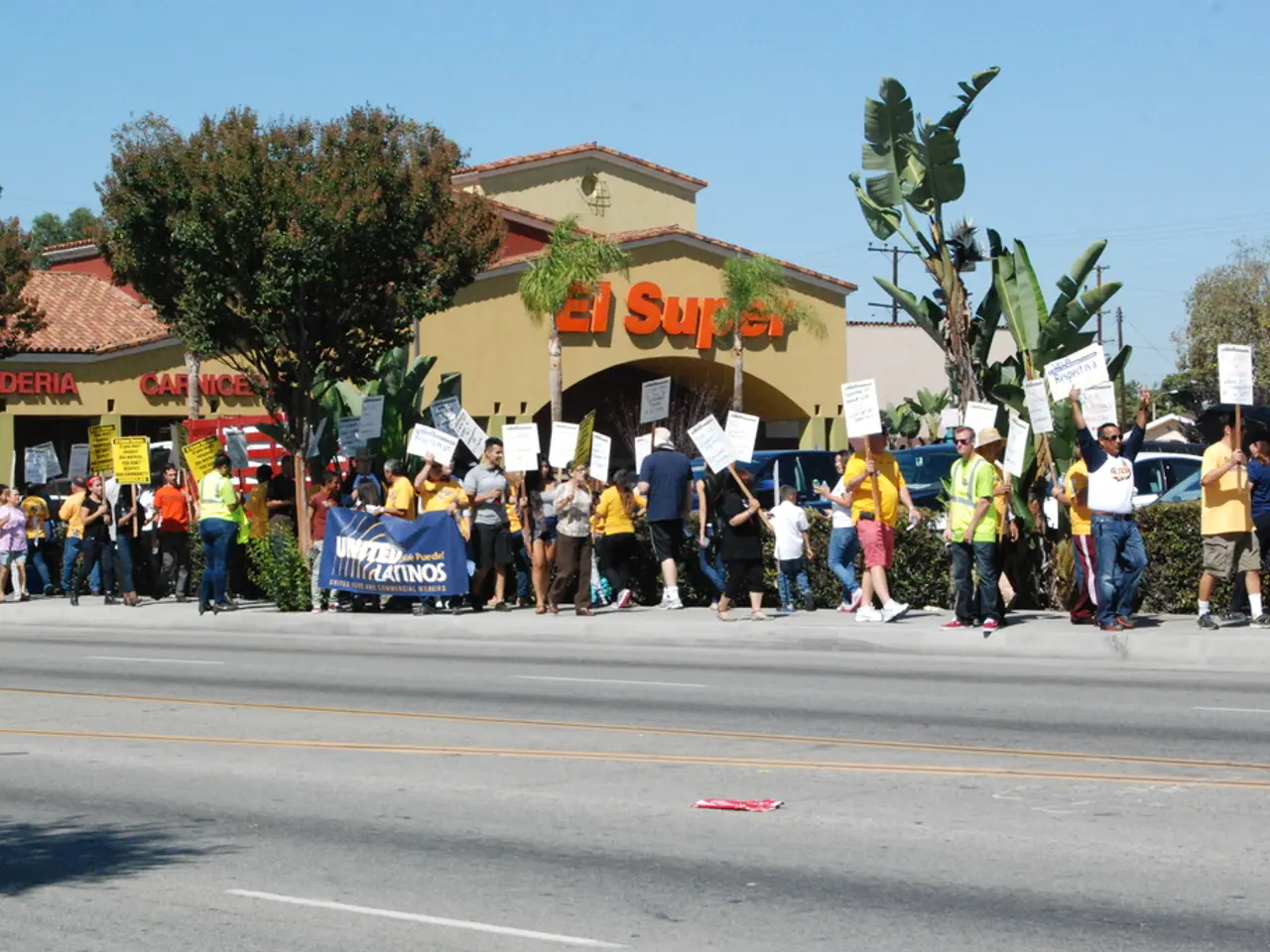Discontent Abound: Most Respondents Unhappy with the Government and the Chancellor, According to Recent Poll Results
As August 2025 approaches, the approval ratings for Chancellor Friedrich Merz and his black-red coalition (CDU/CSU and SPD) in Germany have taken a significant dip. The coalition's overall support has dropped to around 37%, marking a low compared to previous standings[1][2].
Chancellor Merz's personal approval rating stands at 29%, marking his lowest since taking office in May 2025, while dissatisfaction has risen to 67%[1][2][3]. This decline in support can be attributed to growing internal disputes and mistrust within the coalition, with tensions between CDU/CSU and SPD damaging coalition discipline and raising doubts about its stability, especially given looming budgetary challenges and upcoming state elections[4].
Polls suggest that only a narrow majority (around 52%) of Germans believe the coalition will last until the end of the legislative term in 2029[2]. Meanwhile, the far-right Alternative for Germany (AfD) has gained ground, becoming the second-largest political force with around 26% support[1][2][3][5]. The CDU/CSU's share has fallen to approximately 24-26%[1][2][5], while SPD remains relatively stagnant at around 13-14%[1][2][5].
The public shows increasing skepticism, with a rise in undecided voters and non-voters to about 25%, indicative of broader political uncertainty[1][2]. In comparison, former Chancellor Olaf Scholz had a satisfaction rating of 43% and a dissatisfaction rating of 41% after 100 days in office in March 2022.
Here's a breakdown of the current political landscape:
| Entity | Support / Approval Rating | Notes | |----------------------------|----------------------------|---------------------------------------------------------| | Black-Red Coalition | ~37% | Low support, internal disputes hurting cohesion[1][4] | | CDU/CSU | 24-26% | Declining support, worst since April 2025[1][2][5] | | SPD | 13-14% | Stable but low, junior coalition partner[1][2][5] | | Chancellor Friedrich Merz | 29% satisfied, 67% dissatisfied | Worst personal rating since May 2025[1][2][3] | | AfD (Alternative for Germany) | 26% support | Rising as largest opposition party, reflecting protest vote[1][2][3][5] |
While 27% of Germans find Merz's performance worse compared to Scholz, 41% find it neither better nor worse[1]. On the other hand, 26% of Germans find Merz's performance better than that of Scholz[1][2][6]. The FDP would be at 4%, a 1% increase, and the Greens would be at 11%, while the Left would be at 9%[1][2][5].
According to the current Sunday trend of "Bild am Sonntag", the Union and SPD would remain at 27% and 15% respectively[7]. A staggering 59% of Germans have a critical view of Chancellor Friedrich Merz[8].
These findings suggest that the black-red coalition and Chancellor Merz are under strong public pressure, challenged both internally and externally by opposition forces. The political landscape in Germany is evolving rapidly, and the future of the black-red coalition remains uncertain.
[1] Bild am Sonntag Survey, August 2025 [2] Insa Survey, August 2025 [3] YouGov Survey, August 2025 [4] Der Spiegel, August 2025 [5] ARD-Deutschlandtrend, August 2025 [6] ZDF-Politbarometer, August 2025 [7] Bild am Sonntag Trend, August 2025 [8] Forsa Survey, August 2025
What could be the possible policies and legislations that Chancellor Friedrich Merz may propose to improve his and his coalition's approval ratings, given the political landscape and public pressure they are currently facing? Despite the general news of growing discontent and instability within the black-red coalition, what role does politics play in shaping policy-and-legislation agendas in Germany?








